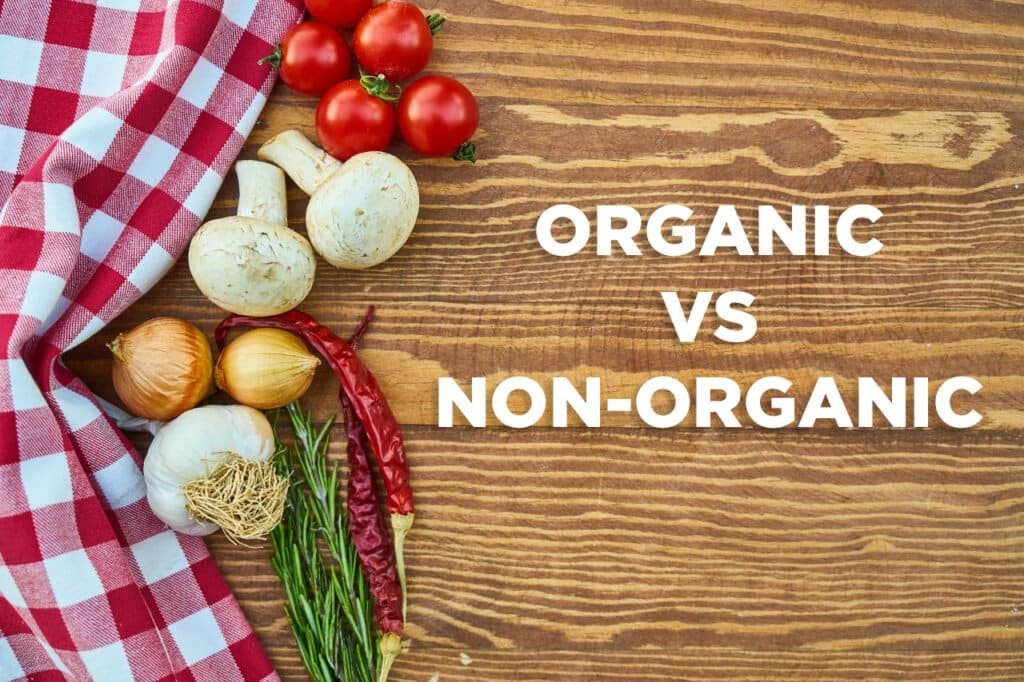Introduction
In recent years, the food industry has seen a surge in the popularity of organic foods. Consumers are increasingly concerned about the source and quality of their food, leading them to seek alternatives to conventionally grown or inorganic products. This growing interest has sparked debates about the effects of organic and inorganic foods on our health. Are organic foods really healthier, or is it just a marketing ploy? In this blog post, we will explore the impact of organic and inorganic foods on our health, considering various factors such as nutritional content, pesticide residues, and environmental considerations.
The Organic Food Movement
Organic farming is not a new concept, but it has gained significant momentum in recent years. Organic food is produced using natural and sustainable farming practices that emphasize soil health, biodiversity, and the absence of synthetic chemicals. Organic farming prohibits the use of synthetic pesticides, herbicides, genetically modified organisms (GMOs), and synthetic fertilizers. Instead, organic farmers rely on crop rotation, natural predators, and compost to maintain soil fertility and protect crops from pests and diseases.
Proponents of organic food argue that these practices result in healthier, more nutritious food that is better for both our bodies and the environment. However, critics question whether the benefits of organic food are substantiated by scientific evidence and whether it is worth the often higher price tag.
Nutritional Content
One of the key claims made by proponents of organic food is that it is more nutritious than conventionally grown or inorganic food. The idea is that organic farming practices result in better soil quality, which in turn leads to higher nutrient content in crops. While this notion seems logical, the scientific evidence is mixed.
Several studies have attempted to compare the nutritional content of organic and inorganic foods. Some have found that organic fruits and vegetables contain higher levels of certain nutrients, such as vitamin C, antioxidants, and polyphenols. However, the differences in nutrient content are often small and may not have a significant impact on overall health.
It’s essential to note that the nutritional content of any food can be influenced by various factors, including the specific crop variety, growing conditions, and post-harvest handling. Therefore, it is challenging to make broad generalizations about the nutritional superiority of all organic foods compared to their inorganic counterparts.
Pesticide Residues
One of the most significant concerns about inorganic food is the presence of pesticide residues. Conventional farming relies heavily on synthetic pesticides to control pests and diseases. While these chemicals can protect crops from damage, they may leave behind residues on the final food products that we consume.
Pesticide residues in food have raised concerns about their potential health effects. Some studies have suggested a link between pesticide exposure and various health problems, including cancer, neurodevelopmental disorders, and reproductive issues. Children and pregnant women are often considered to be more vulnerable to the adverse effects of pesticide exposure.
Organic farming, with its prohibition of synthetic pesticides, is often seen as a solution to this issue. Organic foods are generally expected to have lower pesticide residues, if any. However, it’s essential to recognize that organic farming does allow the use of natural pesticides and some synthetic pesticides approved for organic production. Thus, organic foods are not entirely pesticide-free.
The debate about pesticide residues underscores the importance of washing and peeling fruits and vegetables, regardless of whether they are organic or inorganic. Proper food preparation and handling can reduce exposure to residues and potential health risks.
Environmental Impact
When discussing the effects of organic and inorganic foods on health, it’s crucial to consider the broader environmental implications of our food choices. Organic farming is often praised for its eco-friendly practices, which prioritize soil health, reduce water pollution, and promote biodiversity.
Conventional farming, on the other hand, has been criticized for its heavy use of synthetic chemicals and monoculture farming practices. The widespread use of synthetic fertilizers and pesticides in inorganic farming can lead to soil degradation, water pollution, and harm to non-target organisms.
The environmental impact of food production has indirect but significant health consequences. Water pollution, for instance, can contaminate drinking water sources and harm aquatic ecosystems, ultimately affecting human health. Soil degradation can reduce the fertility of agricultural land, making it more challenging to grow nutritious crops.
Organic farming’s focus on sustainability and minimizing environmental harm aligns with the broader goal of protecting public health. By choosing organic products, consumers can support farming practices that are less detrimental to the environment and potentially reduce their exposure to certain environmental contaminants.
Conclusion
The debate over organic versus inorganic food and their effects on our health is multifaceted and far from settled. While there are arguments in favor of both, it’s essential to approach this topic with a balanced perspective.
Organic food offers potential benefits such as reduced pesticide exposure and more environmentally sustainable farming practices. However, it’s not a guarantee of superior nutrition, and the higher cost of organic products may be a barrier for some consumers.
Inorganic food, when produced with responsible farming practices and attention to minimizing pesticide residues, can also be a part of a healthy diet. Washing and peeling fruits and vegetables can help mitigate some concerns related to pesticide residues.
Ultimately, a well-balanced diet that includes a variety of fruits, vegetables, grains, and proteins—whether organic or inorganic—is key to good health. It’s essential to consider individual dietary preferences, budget constraints, and environmental concerns when making food choices. Making informed decisions about the food we consume is a critical step toward achieving optimal health while promoting sustainable agriculture and protecting our planet.






138 responses
Your point of view caught my eye and was very interesting. Thanks. I have a question for you.
Can you be more specific about the content of your article? After reading it, I still have some doubts. Hope you can help me.
Your article helped me a lot, is there any more related content? Thanks!